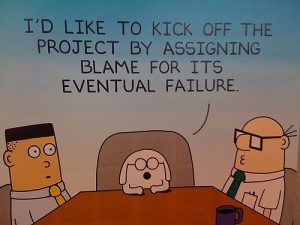One More Year of Choices…
By Barbara Dahlgren
 We live in a society where people do not want to accept responsibility for their actions. If people spill hot coffee on themselves, it’s the restaurant’s fault for making the coffee too hot. If a person shoots someone, it’s the gun manufacturer’s fault. If a person drives drunk, it’s the bartender’s fault. If a child misbehaves, it’s the music industry’s fault. If a smoker dies from lung cancer, it’s the tobacco industry’s fault. Should gun manufacturers, restaurants, bartenders, the music industry, cigarette makers, and others act more responsibly? Yes! Are they to blame for the choices we make? No!
We live in a society where people do not want to accept responsibility for their actions. If people spill hot coffee on themselves, it’s the restaurant’s fault for making the coffee too hot. If a person shoots someone, it’s the gun manufacturer’s fault. If a person drives drunk, it’s the bartender’s fault. If a child misbehaves, it’s the music industry’s fault. If a smoker dies from lung cancer, it’s the tobacco industry’s fault. Should gun manufacturers, restaurants, bartenders, the music industry, cigarette makers, and others act more responsibly? Yes! Are they to blame for the choices we make? No!
To go a step further, our culture places blame on circumstances, parents, the media, our plight, or anything else that will minimize our own faults. While it’s true our lives are heavily influenced by environment and heredity, there comes a time when we need to shape the clay of our lives into what we want and stop blaming our parents, our lack of luck, or the times we live in for who we are. Who we are today does not have to be who we are tomorrow.
Human beings are experts at making excuses. They “wah, wah, wah, wah” their way through life saying things like: “I wasn’t told. I never had an opportunity. Everybody is doing it. They owe it to me. They don’t treat me right. They don’t like me. It’s not my fault.”

This proclivity to blame others for our circumstances and poor choices is not new. It’s been going on since the time of Adam and Eve. If you read Genesis 3, you’ll see that when God asked Adam why he disobeyed by eating from the tree of the knowledge of good and evil, Adam blamed Eve. Then Eve blamed the serpent. Adam went so far as to say to God, “It’s the woman, YOU gave me!” Now it was God’s fault. Everyone wanted to blame somebody else. And so the pattern was set, and we’ve been blaming someone else for what we do ever since.
Even though a pattern was set doesn’t mean it can’t and shouldn’t be altered. It can begin with us. We can make an effort to change our circumstances. We can also say, “I made a mistake. I’m sorry.” We need to be accountable in school, with parents, with kids, in marriage, to employers, to employees, with the government, with our neighbors, with our friends, and with God. If we start to accept responsibility for some of our lesser poor choices, we might learn something. Maybe we’ll learn to make better and wiser choices in the future.

Suggestions for practicing this choice…
- If you are in a bit of a mess, ask yourself how you could have avoided it. Learn what lessons you can, and try not to make the same mistakes again.
- It won’t kill you to admit you’re wrong occasionally. Try it! Repeat after me. “I was wrong. I am sorry.” Say it again. “I was wrong. I am sorry.” You can do it. Give it a try.
- Just because you make mistakes does not mean you are unlovable. God loves you. Your spouse loves you. Your kids love you. Your parents love you… Well, God loves you!
- Read the following quote by Dr. Wayne Dyer often. “All blame is a waste of time. No matter how much fault you find with another, and regardless of how much you blame him, it will not change you. The only thing blame does is to keep the focus off you when you are looking for external reasons to explain your unhappiness or frustration. You may succeed in making another feel guilty about something by blaming him, but you won’t succeed in changing whatever it is about you that is making you unhappy.” In other words, blame does not change you or your circumstances. It is totally unproductive.
- Don’t play the blame game because you will always lose!

